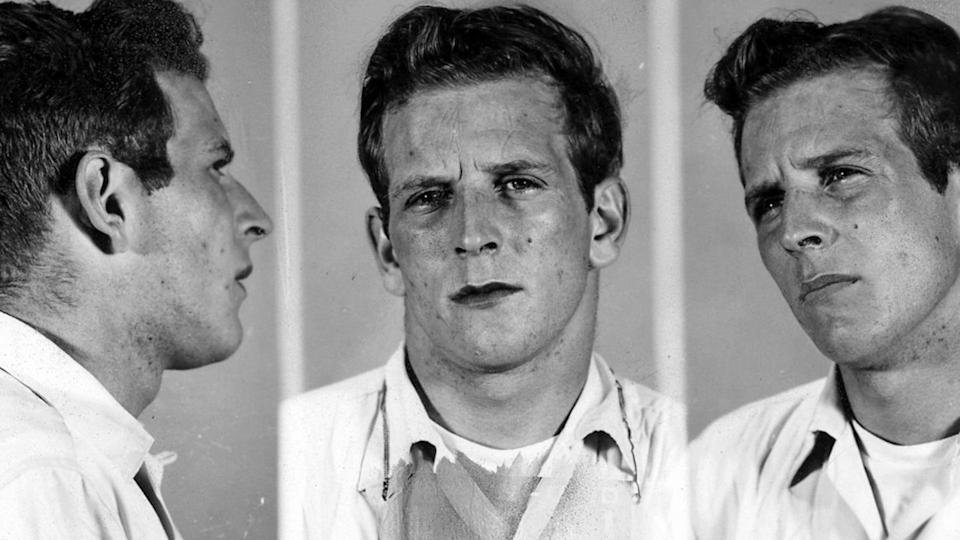April Balascio Suspected Her Father Was a Serial Killer—and She Was Right

When April Balascio was in the second grade, her dad brought her to a sprawling park in their quaint town of Norton, Ohio. It was muggy out, and mosquitos swarmed the 8-year-old's ankles.
"What are we doing here?" she asked.
Her dad—handsome back then and charming, the kind of man who organized games of tag for neighborhood kids—walked them by a pond, through a gathering of tall weeds, and onto a paved path. "Here!" he suddenly proclaimed, pointing to the ground.
The next thing Balascio, now 50, recalls from that day are blaring sirens and flashing lights. Years later, she'd discover that her dad, handyman Edward Wayne Edwards, had actually taken her to the very spot where he'd shot Billy Lavaco, 21, and Judith Straub, 18, point-blank in the neck and left their corpses to rot: a crime he confessed to over three decades later. She believes he also called the police, claiming to have "stumbled" upon the bodies, even answering questions from detectives after they arrived on the scene. Thanks to memories like this one, Balascio eventually helped police zero in on her father for murders that had gone unexplained for decades.

Edwards, who died of natural causes on April 7, 2011, was one of America's most prolific serial killers. He murdered at least five people (and is suspected of additional killings) between 1977 and 1996, and was sentenced to life in prison. True-crime junkies have also entertained the idea that Edwards had a hand in some of the country's biggest unsolved mysteries, including the still-unidentified Zodiac Killer and the death of child beauty queen JonBenét Ramsey.
Balascio generally shies away from talking about her father. But in Gimlet's riveting new true-crime podcast The Clearing, out July 18, she opens up about crimes she believes police missed—and the many conspiracy theories that have, for decades, followed her family.
While Balascio did not have creative control over the podcast, the artist and mom of three says it finally felt like a chance to speak candidly about her father on her own terms. The Clearing was made in partnership with Pineapple Street Media, the company behind Missing Richard Simmons and Surviving Y2K, and hinges on Balascio and journalist Josh Dean working "together to dig back into her childhood, unravel the truth of her father’s life and overturn a viral online narrative that had turned Edward Wayne Edwards into a kind of serial killer caricature," according to a press release.
"It was just absolutely infuriating that all this attention is being brought to these cases that I know my father didn't commit, and that no one was paying attention to the cases that I believe that my father actually did commit," Balascio tells ELLE.com. "I want to set the facts straight about some of the myths or accusations out there."

Growing up, Balascio always had a sneaking suspicion that her dad might be a killer. He was an abusive man, both physically and emotionally, with a checkered past: In 1961, Edwards landed on the FBI's 10 Most Wanted list for robbery.
He moved their family from town to town—often giving no reason and without warning—in the middle of the night. Stranger still was his obsession with murder. He cut out newspaper clips from local cases in their town, and taped them up on walls around the house. He even inserted himself into investigations.
But it wasn't until 2009 that Balascio began to connect the dots. After Googling "cold cases" and "unsolved murders" in the towns where they'd lived, she came to a startling realization: Kelly Drew and Tim Hack, the teens who disappeared after a wedding reception in 1980, only to be discovered stabbed and strangled three months later, were from Watertown, Wisconsin—one of the places they moved to.
Balascio tipped off authorities and, three weeks later, was told that DNA from her dad was a match to the murders. In 2010, Edwards was sentenced to two life sentences at age 77 and, a year later, also pleaded guilty to killing his 25-year-old foster son.

Balascio says telling her children that their grandfather was a serial killer was difficult—but necessary so that they didn't stumble across it themselves online. "I sat down with them when I turned my father in, because I think family secrets always come back to bite you in the butt if you don't get them out there," she says. "I did it in a respectful way [and] didn't go into gory details. Plus, they were going to see it. I'd rather have that come from me than from someplace else."
Balascio hopes The Clearing will lead to a renewed focus on cold cases in the cities where she lived. "I just hope this podcast brings attention to unsolved cases," she says. "I believe that my father has committed [more crimes in the cities where we lived], and the podcast has that message, the truth, in it."
Listen to The Clearing on Apple Podcasts or on Spotify.
('You Might Also Like',)


